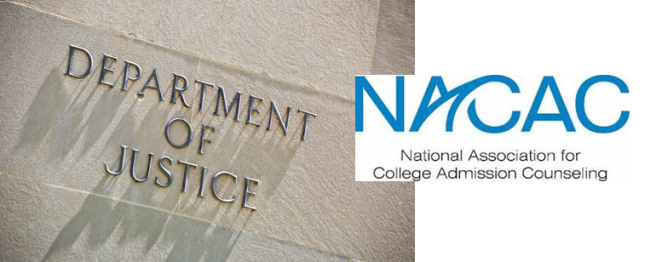You have /5 articles left.
Sign up for a free account or log in.

iStock
LOUISVILLE, Ky. -- When the Assembly of the National Association for College Admission Counseling has in years past debated measures to regulate the recruiting of international students or the proper rules for waiting lists and many other issues, debate has been heated. It was anything but heated this year, although the issue before the delegates was arguably more important than any of those.
Delegates voted Saturday -- 211 to 3 -- to strip provisions from the Code of Ethics and Professional Practice that may violate antitrust laws. The provisions are:
- "Colleges must not offer incentives exclusive to students applying or admitted under an early decision application plan. Examples of incentives include the promise of special housing, enhanced financial aid packages, and special scholarships for early decision admits. Colleges may, however, disclose how admission rates for early decision differ from those for other admission plans."
- "College choices should be informed, well-considered, and free from coercion. Students require a reasonable amount of time to identify their college choices; complete applications for admission, financial aid, and scholarships; and decide which offer of admission to accept. Once students have committed themselves to a college, other colleges must respect that choice and cease recruiting them."
More News From NACAC
- A look at the conference as expressed through the stages of grief.
- The profession self-reflects on Varsity Blues.
- Inside Higher Ed's 2019 survey of campus admissions leaders.
- "Colleges will not knowingly recruit or offer enrollment incentives to students who are already enrolled, registered, have declared their intent, or submitted contractual deposits to other institutions. May 1 is the point at which commitments to enroll become final, and colleges must respect that. The recognized exceptions are when students are admitted from a wait list, students initiate inquiries themselves, or cooperation is sought by institutions that provide transfer programs."
- "Colleges must not solicit transfer applications from a previous year’s applicant or prospect pool unless the students have themselves initiated a transfer inquiry or the college has verified prior to contacting the students that they are either enrolled at a college that allows transfer recruitment from other colleges or are not currently enrolled in a college."
Before they approved the measure to strip the provisions, the delegates approved (unanimously) rules that would limit discussion, but they didn't need the rules. There was no discussion on stripping the provisions, which most NACAC members learned of only at the beginning of the month. The Justice Department has been investigating NACAC for possible violations of antitrust laws for nearly two years, but the details of that investigation have not been generally known for most of that time. The Justice Department believes that with these rules, colleges are colluding to take away student choices.
Some experts on higher education believe that without the provisions, colleges will be tempted to poach students from other colleges. But the mood at the meeting was to avoid that issue; most people voted to save NACAC, which could not afford a long, drawn-out fight.
In an interview, Stefanie Niles, whose term as president of NACAC ended Saturday, said she believed that the deciding factor on the vote for many members "was a desire to preserve this organization."
Niles, vice president for enrollment and communication at Ohio Wesleyan University, said that however much NACAC members liked the provisions, the Justice Department gave NACAC no other options but to approve removing them. The department is not commenting but is expected to soon issue a consent decree finding that NACAC did violate antitrust rule with the provisions that were removed, and is in compliance having removed them.
NACAC held extensive discussions during September, and Niles said she heard much thoughtful criticism of the rules. But she said there was no choice.
Niles stressed that just because NACAC revoked its rules on early decision and nonpoaching, that does not mean that colleges have to drop the rules. Ohio Wesleyan, for example, will continue to observe the rules, she said.
One item not governed by the stripped rules is deposits, and many admissions experts have predicted that colleges will raise their deposits -- to avoid being raided by other colleges for their students.
Niles said that "there's a big difference between $400 and $2,000" in terms of preventing a loss of students, and in terms of the message that would send to low-income students. She said she wouldn't change her college's fees (from $400) this year, but might at some point in the future.
After the vote, many attendees at the meeting (only some of whom had voting rights) predicted that the changes would be approved, but only after many expressed opposition.
One member said after the vote, "I think we're going to have a lot of difficult conversations ahead of us," talking about practices that would discourage colleges from poaching students.
Another said, "Many of us are sad and somewhat angry, because we are committed to doing what's right for kids and families, and we think this goes backwards, but hope springs eternal that we'll find a way" to protect students from unscrupulous colleges.
The problem, according to those who favored NACAC's action, was that the measures NACAC took eliminated procedures that prevented poaching of students. While colleges value holding on to some students after May 1, the reality is that most colleges don't fill their classes by that date. And the Justice Department views poaching as a legitimate right for students.




